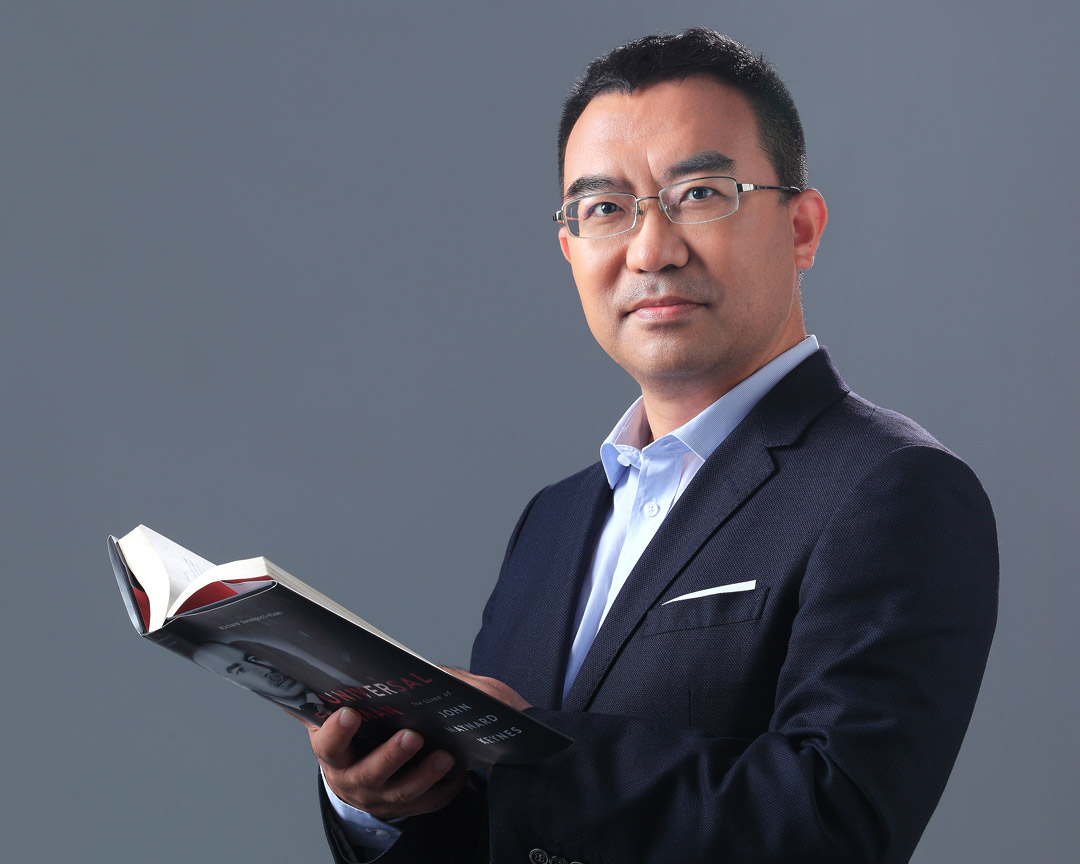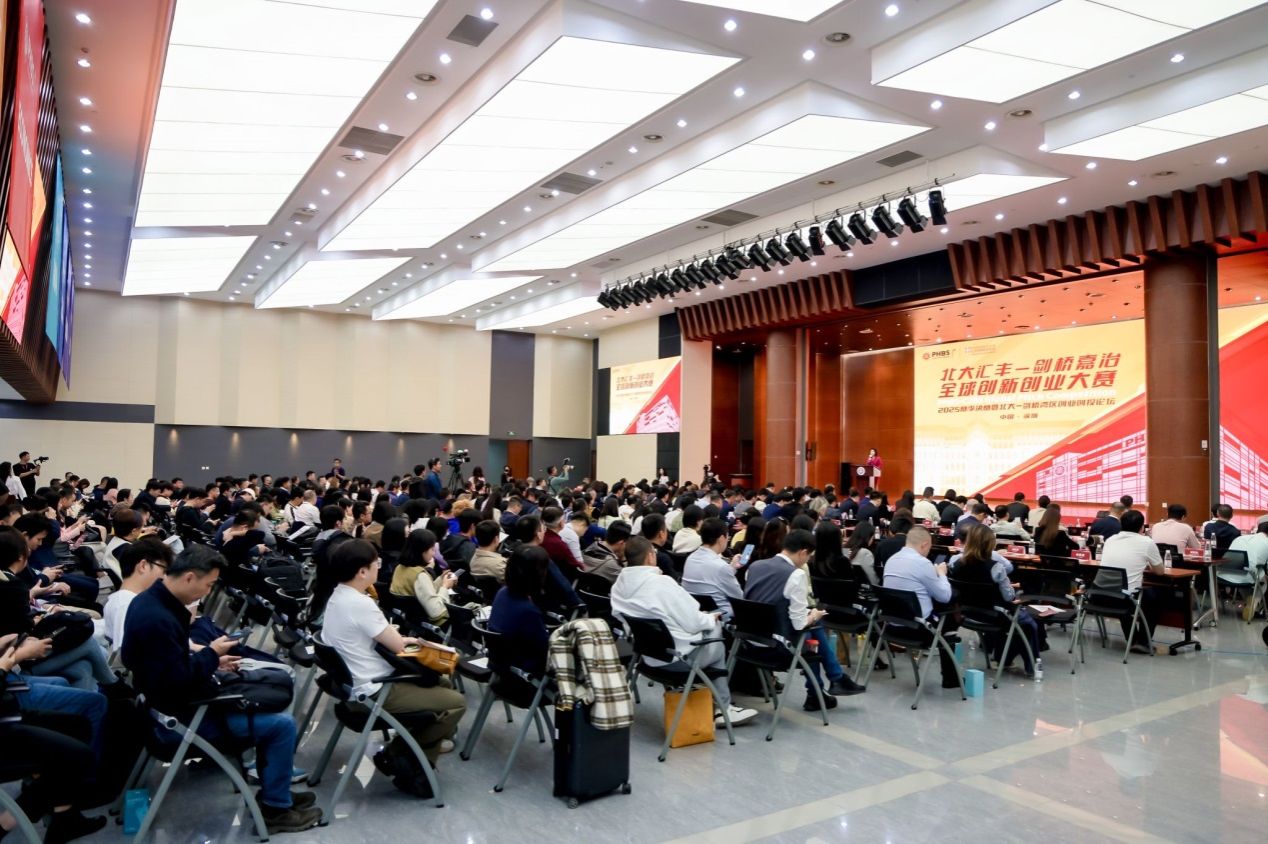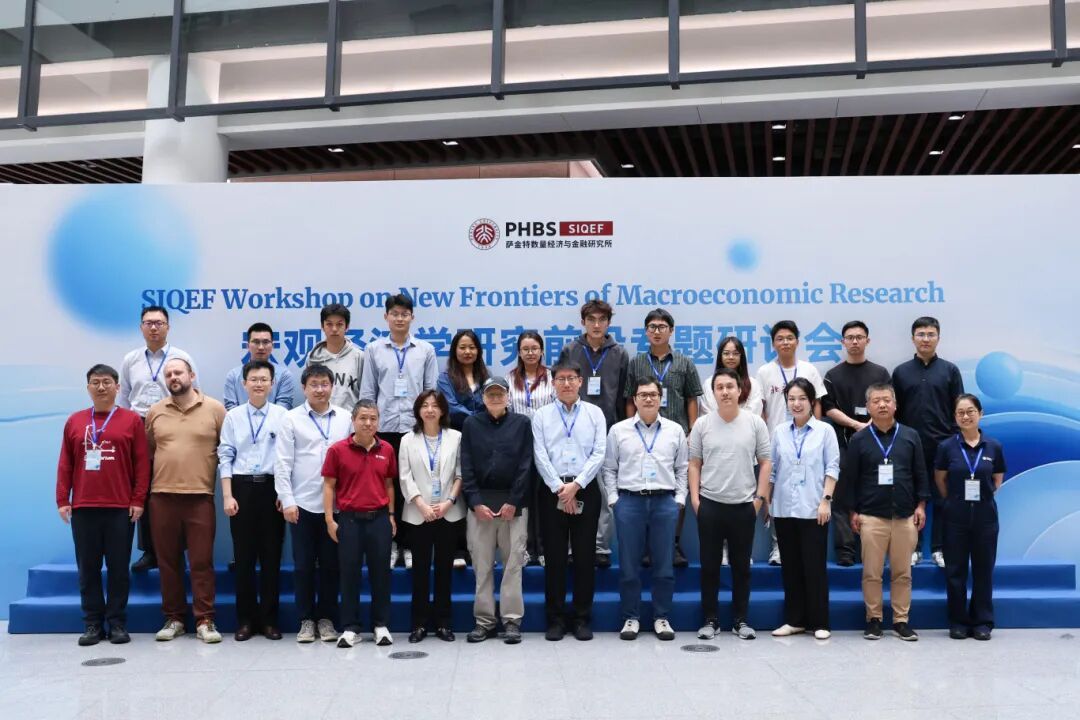Renowned Chinese economist He Fan has joined Peking University HSBC Business School (PHBS) as the executive dean of the Research Institute of the Maritime Silk Road (RIMS). As a high-level think tank, RIMS focuses on research concerning the “Belt and Road” initiative, which consists of two main components, the land-based Silk Road Economic Belt (SREB) and oceangoing Maritime Silk Road (MSR). MSR aims to foster collaboration in Southeast Asia, Oceania, and North Africa.
Said PHBS Dean Hai Wen, “We hope that RIMS can provide professional advice for China’s strategy and policy making, and contribute to Shenzhen, Guangdong and Hong Kong’s economic development.” He noted that RIMS’ research can also promote the integration between PHBS’ teaching and research.
HE Fan, economist and the executive dean of RIMS
“RIMS will focus on global macroeconomics, China’s direct overseas investment, marine economy, and international strategies,” said Professor He. “Through intensive field study, RIMS will conduct in-depth research on the politics, economic and social situation of countries in the Maritime Silk Road area, establish ties with those countries’ think-tanks, and establish a Maritime Silk Road think tank union.”
Professor He said that RIMS will leverage PHBS’ strong faculty resources to closely work with financial institutions and innovative enterprises in Shenzhen. PHBS has over 60 full-time faculty members, and more than 95% of them earned their PhD from prestigious overseas universities, such as MIT, Chicago University and Oxford University, and nearly half of the faculty are international themselves. According to him, RIMS will launch a series of research projects, and publish working papers, policy briefings as well as media columns. In addition, the institute will also organize international forums, seminars and lectures.
He Fan earned his Ph.D. and master’s degrees in economics from the Graduate School, Chinese Academy of Social Sciences. His research encompasses China's macro economy, international finance and political economy. He has published more than 100 papers in academic journals and is the author of more than 10 books. In addition to his academic work, Professor He serves as a commentator for CCTV television channel, the Xinhua News Agency, and FT Chinese network, as well as writing columns for other Chinese and foreign media.
He has actively participated in discussions on RMB exchange rate reform,, East Asian regional economic cooperation, Sino-US economic strategy, G20 and other policy-making issues. In 2005, the scholar attended the symposium of exchange rate reform experts chaired by former Premier Wen Jiabao. He also has acted as a policy-making consultant for government and business. In particular, he has worked as a member of the Exchange Rate Expert Group of the People's Bank of China, advisor to the Ministry of Finance and the Ministry of Commerce, and also a member of the Bellagio group of central bankers and academics (Group 30). Noted for its advocacy of making changes to global clearing and settlement, G30 is an international body of leading financiers and academics that aims to deepen understanding of economic and financial issues and to examine corresponding consequences of decisions made in the public and private sectors. Over the past few years, Professor He has worked closely with the Shenzhen municipal government, presiding over the Shenzhen Qianhai financial industry development planning project.
Before joining PHBS, Professor He served as the deputy director of the Institute of World Economics and Politics at the Chinese Academy of Social Sciences, which, according to the University of Pennsylvania's global think tank rankings, is among the top 30 international think tanks in the field of domestic and international economic policy. He also worked as the chief economist of Caixin Media, a leading media group in China. In 2006, Professor He was named the Global Youth Leader in Davos World Economic Forum, later as Asian youth leader by Asian Society, and the US-China Youth Leader by US-China National Relations Committee.
Professor He’s presence at PHBS will also enrich the student experience here. He plans to invite domestic and foreign officials and policy researchers to visit the school for high-level discussions with students and faculty members. Starting in fall 2017, He will teach two courses. China Economy will be offered for full-time students and aims to interpret the development of China's economy with modern economics and help students better understand the country’s economic policy decisions. The course Global Political Economy, designed for EMBA and MBA students, will discuss the historical, political and economic dimensions of global economy, and introduce students to an international perspective.
By Annie Jin
Edited by Priscilla Young















